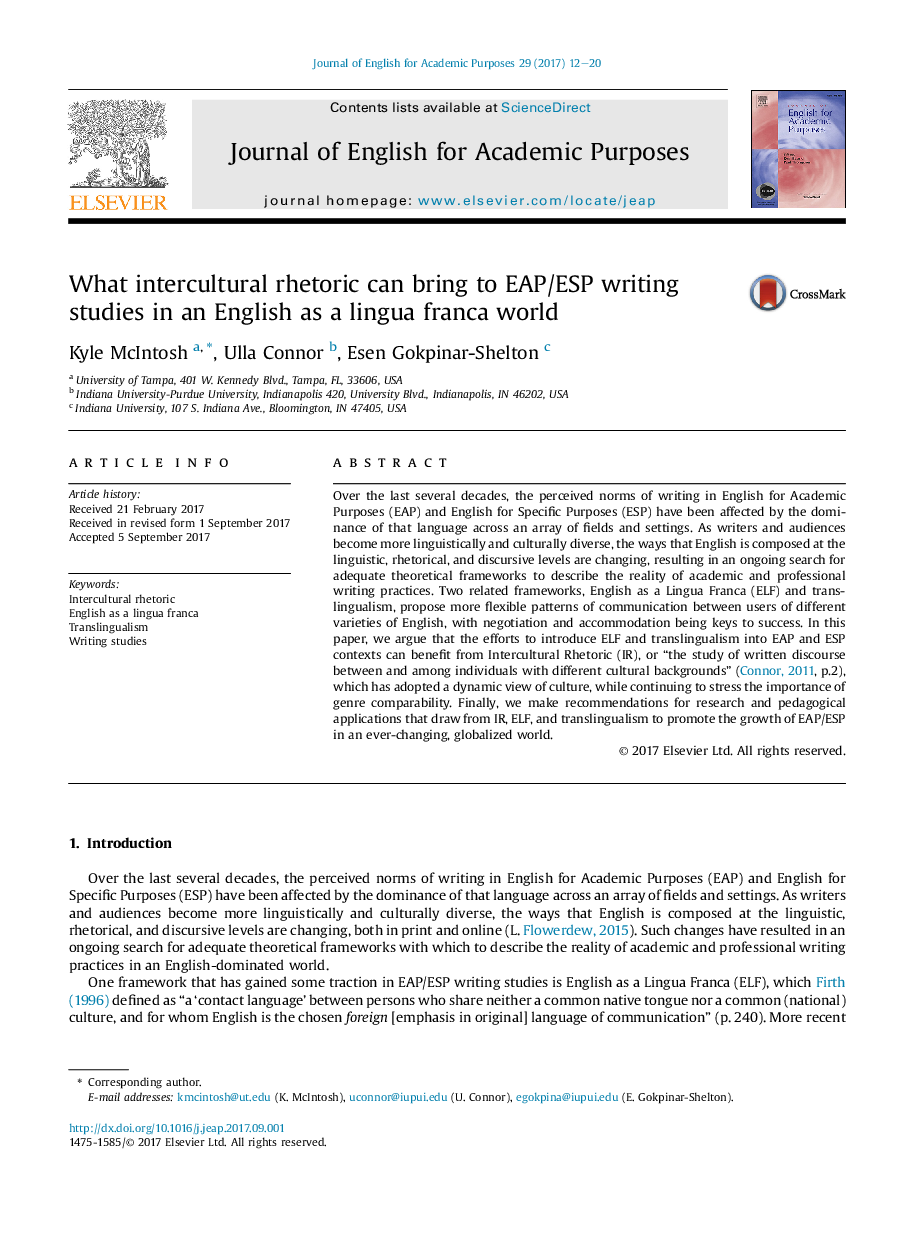| Article ID | Journal | Published Year | Pages | File Type |
|---|---|---|---|---|
| 4939227 | Journal of English for Academic Purposes | 2017 | 9 Pages |
Abstract
Over the last several decades, the perceived norms of writing in English for Academic Purposes (EAP) and English for Specific Purposes (ESP) have been affected by the dominance of that language across an array of fields and settings. As writers and audiences become more linguistically and culturally diverse, the ways that English is composed at the linguistic, rhetorical, and discursive levels are changing, resulting in an ongoing search for adequate theoretical frameworks to describe the reality of academic and professional writing practices. Two related frameworks, English as a Lingua Franca (ELF) and translingualism, propose more flexible patterns of communication between users of different varieties of English, with negotiation and accommodation being keys to success. In this paper, we argue that the efforts to introduce ELF and translingualism into EAP and ESP contexts can benefit from Intercultural Rhetoric (IR), or “the study of written discourse between and among individuals with different cultural backgrounds” (Connor, 2011, p.2), which has adopted a dynamic view of culture, while continuing to stress the importance of genre comparability. Finally, we make recommendations for research and pedagogical applications that draw from IR, ELF, and translingualism to promote the growth of EAP/ESP in an ever-changing, globalized world.
Related Topics
Social Sciences and Humanities
Arts and Humanities
Language and Linguistics
Authors
Kyle McIntosh, Ulla Connor, Esen Gokpinar-Shelton,
